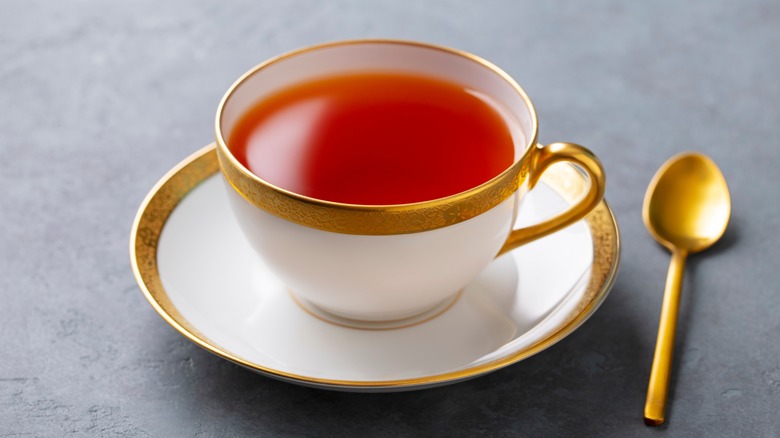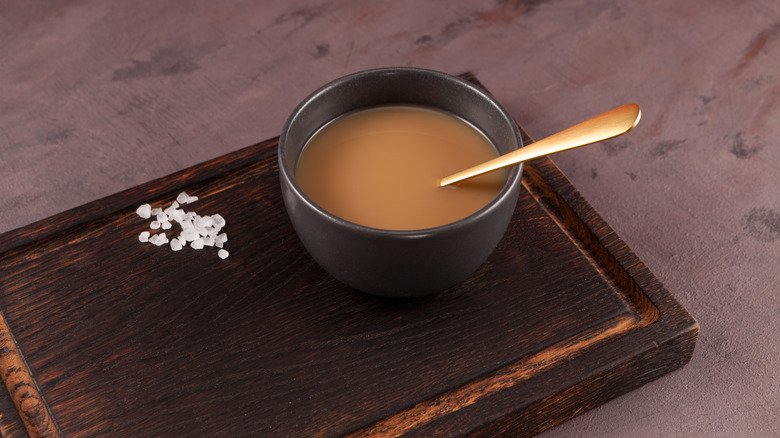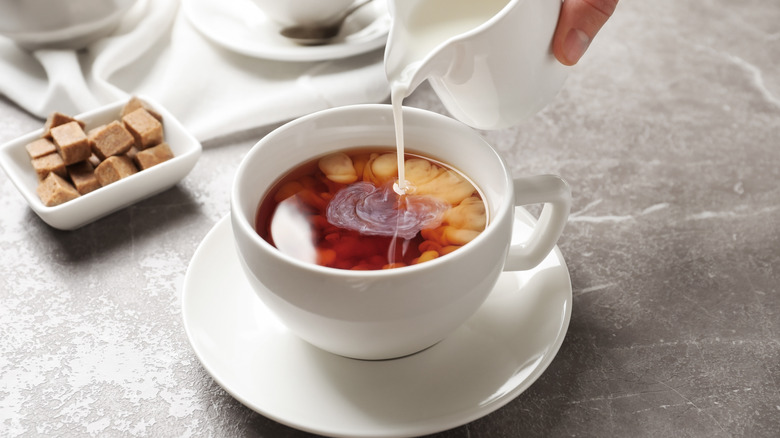Why England And America Are Fighting Over Tea Again
The topic of tea has historically been a point of contention between America and England. Just look at the 1773 Boston Tea Party incident; technically, no one was hurt during the mass dumping of tea into the Boston Harbor, but it was this dispute that ultimately helped bring on the Revolutionary War.
Britain regards tea as its national beverage and largely considers some American ways of treating tea to be anomalies, to put it lightly. For example, finding Southern-style sweet and iced tea in Great Britain can prove to be difficult, and a proper British subject would never heat their tea water in the microwave the way we Yankees sometimes do.
While our two countries have remained largely at peace for over 200 years, a recent claim by an American regarding the preparation of tea has the Brits, once again, putting up their dukes for a fight (this time, at least, a verbal one). Michelle Francl, a chemistry professor at Pennsylvania's Bryn Mawr College, has just released her book, "Steeped: The Chemistry of Tea," which explains the author's journey to find what makes the perfect cup. One of her tips? Just add salt. Cue the English kings and queens of yore rolling over in their graves.
Francl's claim caused such an immediate uproar that the U.S. Embassy in London made a tongue-in-cheek statement on X, formerly Twitter, about the matter, calling the idea of salted tea "outrageous." To be fair, Francl indeed used chemistry to back up her assertion.
Brewing up a storm
In explaining the upside of adding salt to your tea, author and chemistry professor Michelle Francl told the British news outlet The Telegraph, "A pinch of salt is not even enough to taste and it turns out salt can moderate your perception of bitterness...it's great if you've accidentally over brewed your tea. I've taken to adding just a tiny pinch of salt — and it really does help."
To reiterate, Francl claims that adding just a touch of salt to your tea shouldn't result in a salty flavor, but it simply balances out any excess bitterness, resulting in a smoother beverage. In her book, she also explores less controversial tea-making topics like the size and shapes of tea bags, warming water in the microwave (she doesn't advise it), pre-warming your mug and teapot, when to add your milk, and the role aroma plays in drinking tea.
Francl has been a lover of tea since she was a child and was apparently shocked by the rapid backlash her theory garnered. Still, she encourages readers on both sides of the pond to experiment for themselves and, like any good scientist, form their own questions, hypotheses, and conclusions.
Salted tea is not a new concept
Michelle Francl certainly isn't the only person in history to argue the case for putting salt in tea. In her book, the author explains that she researched 8th century manuscripts written by Chinese tea master Lu Yu, which suggested the same idea. During the Tang Dynasty, people regularly added salt to their tea and, even today, Tibetan butter tea and Mongolian milk tea are both prepared with a touch of salt.
In the culinary world, salt is well known to enhance or bring out sweet, umami, and sour flavors while also taming bitterness, which is a common characteristic of certain tea leaves especially if they've been left to brew for too long. Sugar can cover or mask bitter flavors, but salt will neutralize it without changing the flavor (which sugar will do).
Hopefully, any bitter feelings that Great Britain has about this American's claim will boil over quickly, although it's doubtful the English will be asking for the salt shaker during high tea anytime soon.



